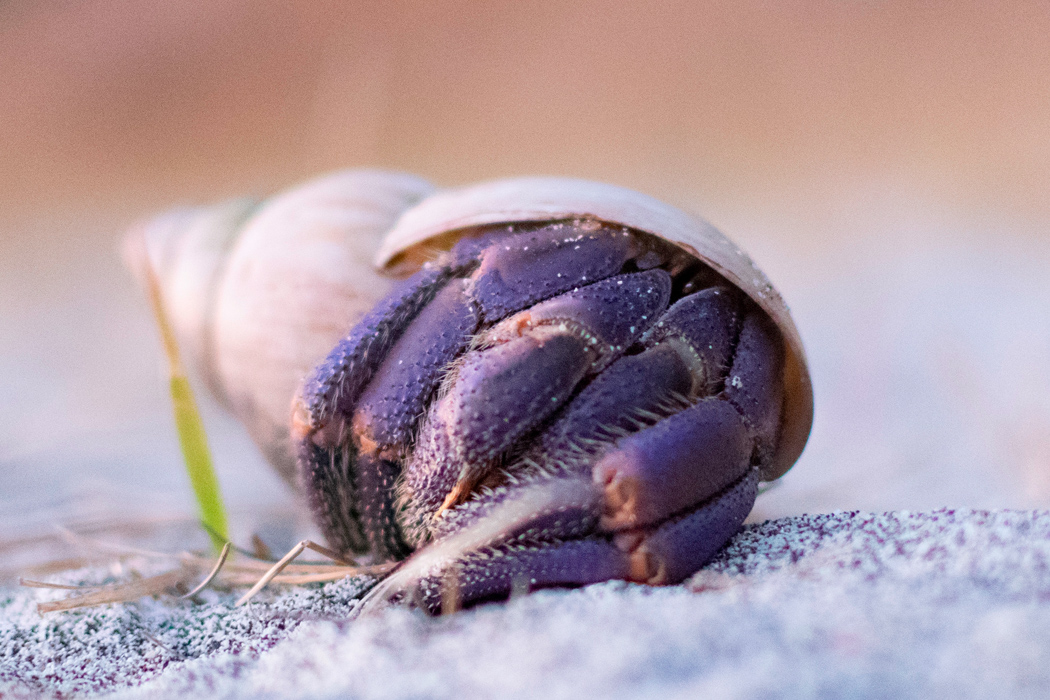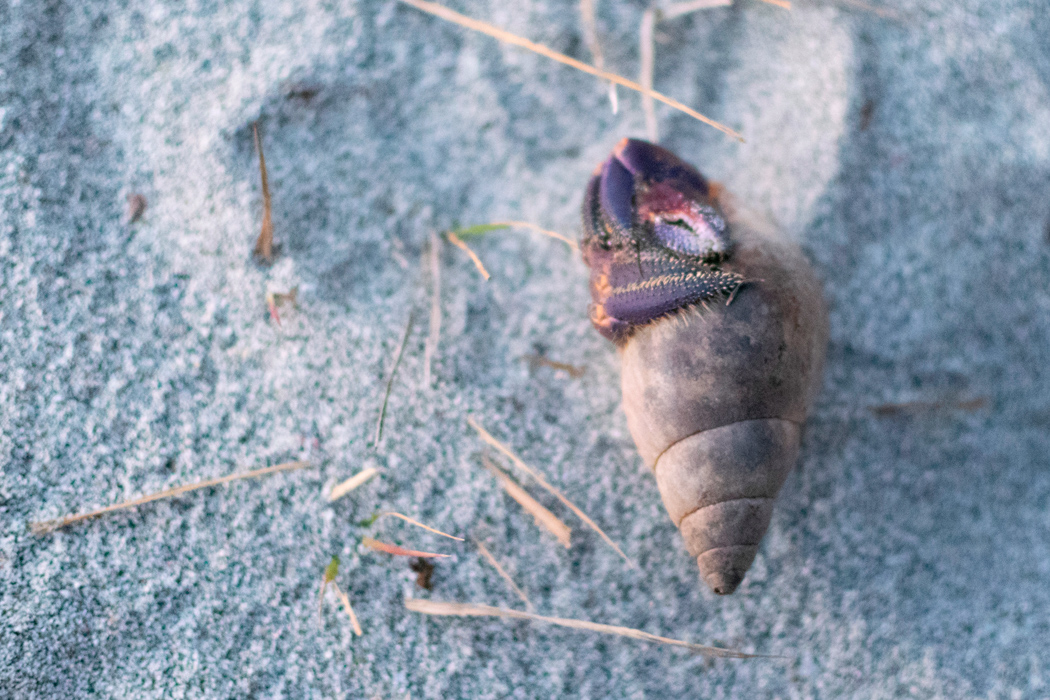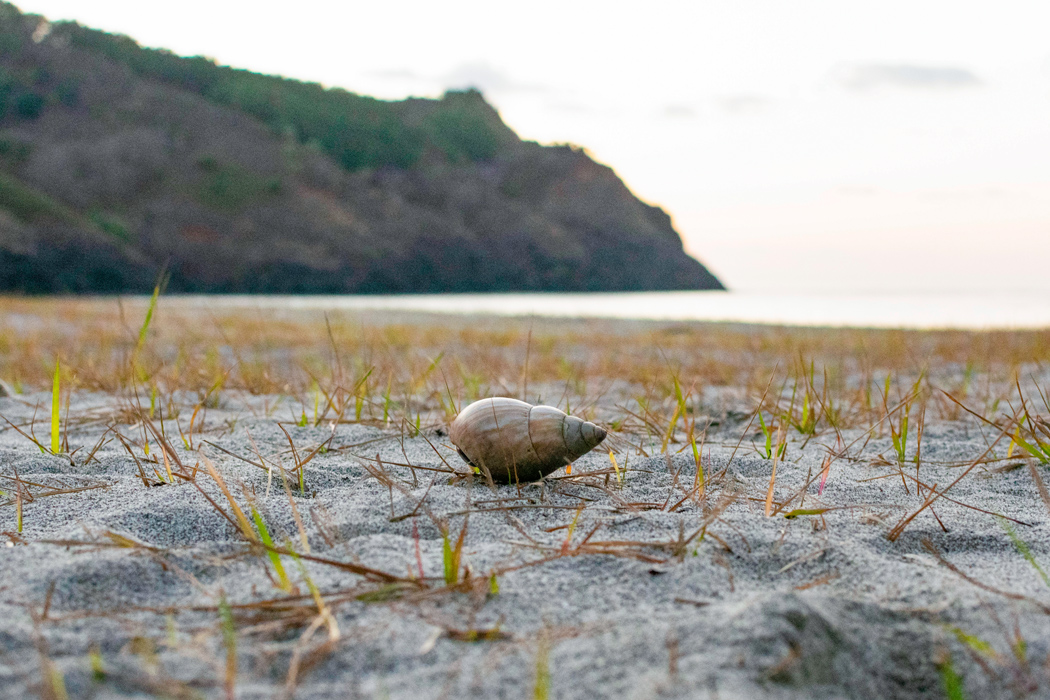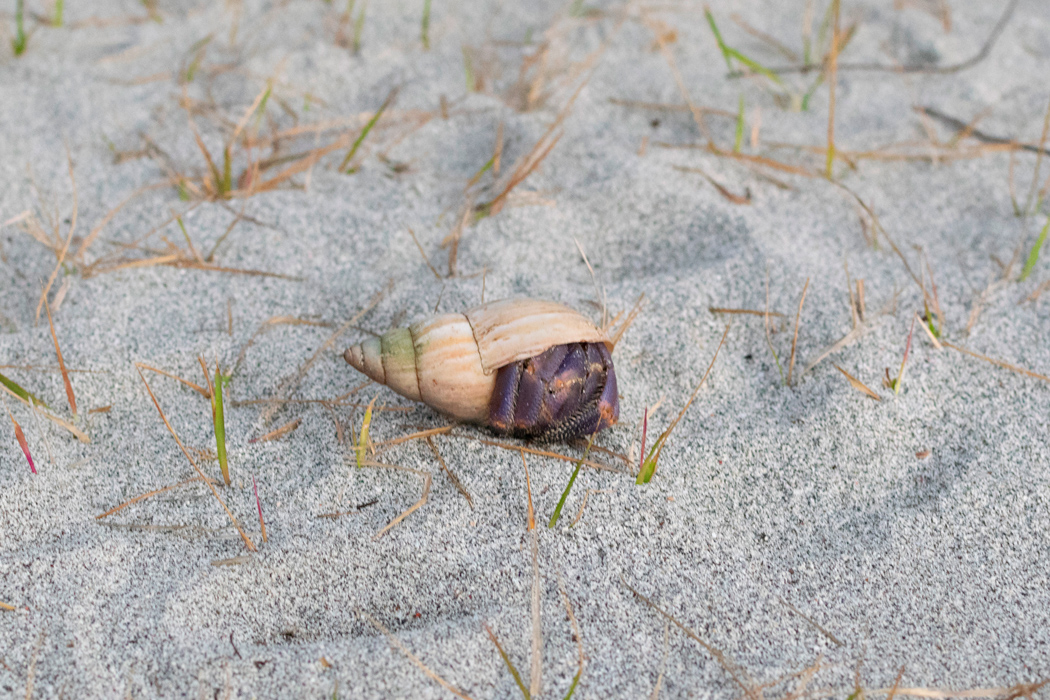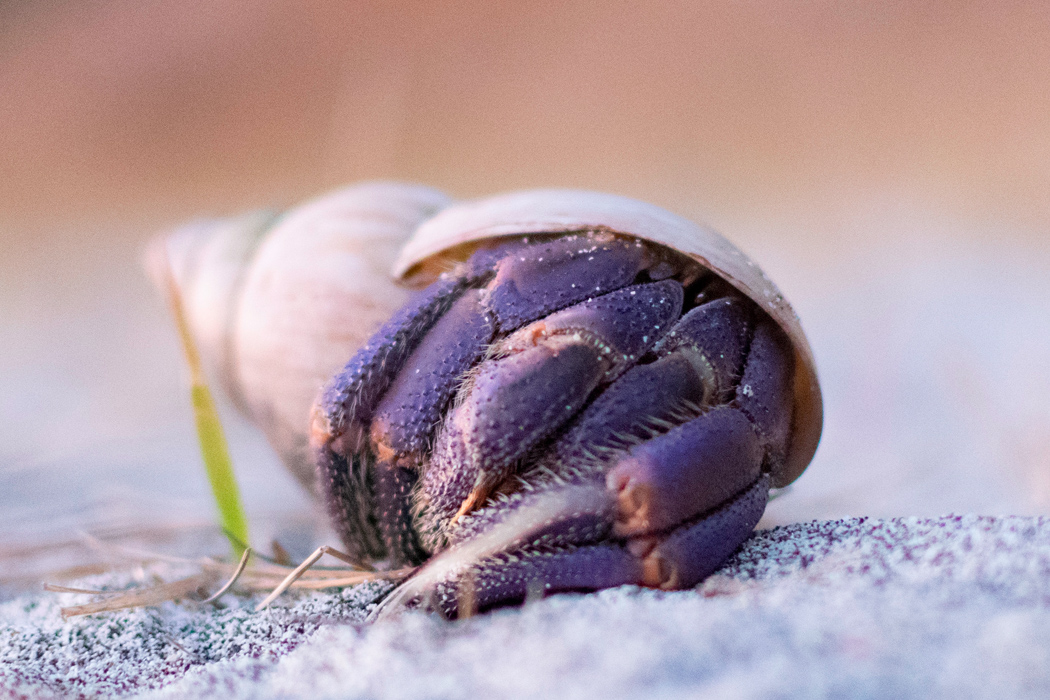
---
Violet legs tightly closed when alerted.
| Scientific name | Coenobita purpureus |
| English name | --- |
| Japanese name | 紫陸宿借 |
| Classification | Malacostraca |
| Classification details | Decapoda Coenobitidae |
| Full length | about 10cm |
| Distribution | Ogasawara Islands, south of Kagoshima. |
Characteristics
A kind of hermit crab designated as a natural monument. The color of the body is purple, and shells such as snails are mainly used as host shells. They store water in their shells to keep them from getting cold, and live near the coast to stay hydrated. Also good at climbing trees. When it senses danger, it hides in its shell and closes its legs tightly, or scratches the shell with its legs and makes a crackling sound to intimidate.
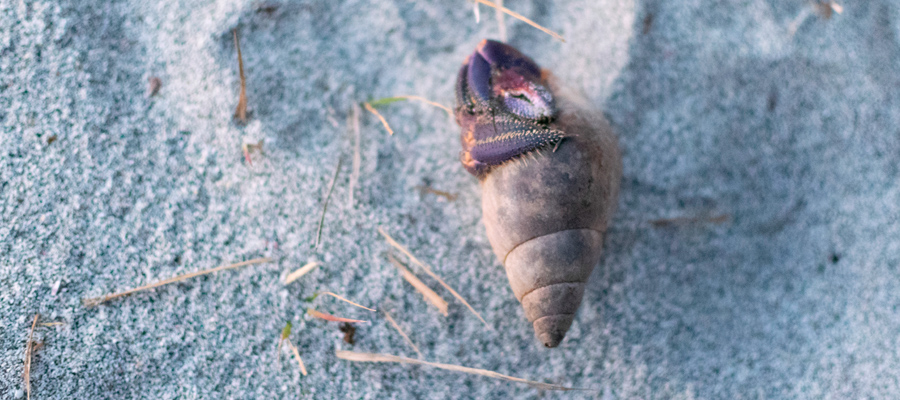
Ecology
They live in forests near tropical coasts and oceans, and eat anything, including seafood and plants. The breeding season is from May to August, and eggs are laid on the beach. The larvae once live in the sea as plankton, then find conch shells and come ashore. It grows by repeatedly molting and is thought to have a lifespan of 25 years or more.
Habitat
Found at Kominato Beach, Chichijima, Ogasawara Islands. In the woods that stretched to the coast, I heard a rustling sound and searched in the bushes. I tried to move it to the sandy beach and observe it, but I was cautious and shut myself up inside. After ten minutes of silence, it opened its closed legs just a little.
There seems to be a certain amount of hermit crabs in the forest near the coast, and when I was quiet, I heard the sound of crawling on the ground.
Pictures
Introducing a picture of ---.
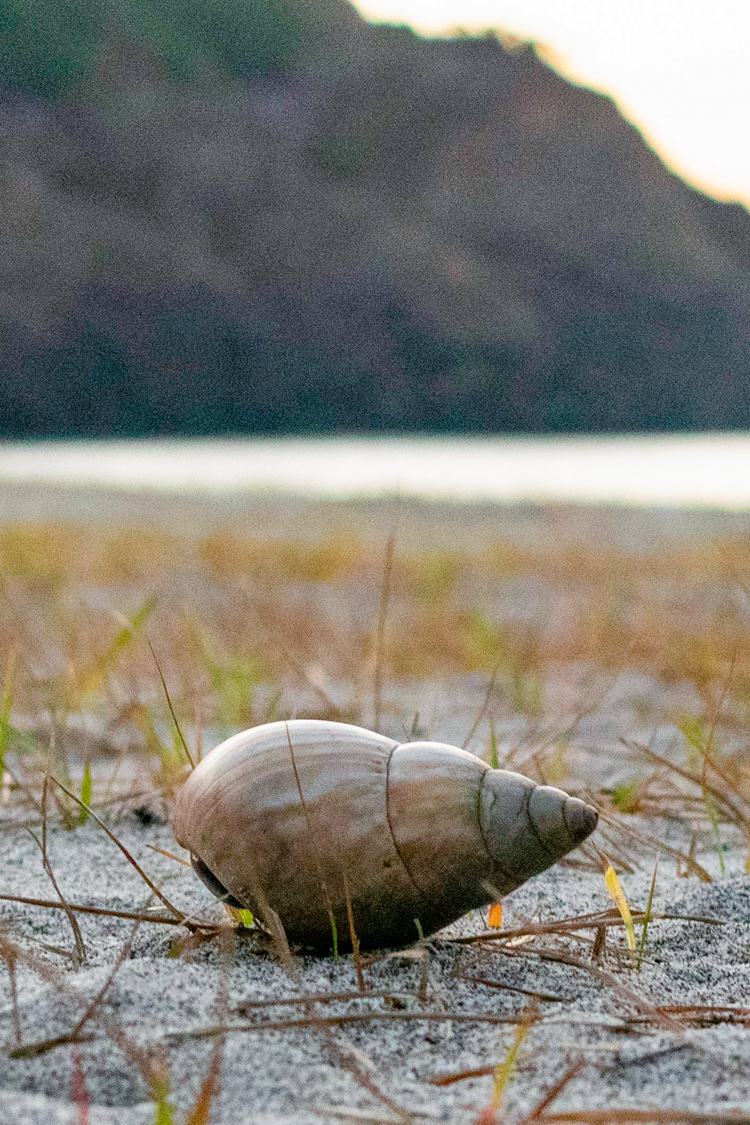
Picture book
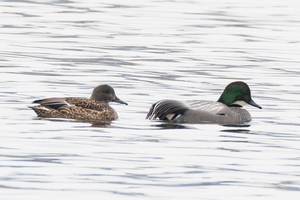
Falcated duck
The male looks like he's wearing a Napoleon hat.......ead more.
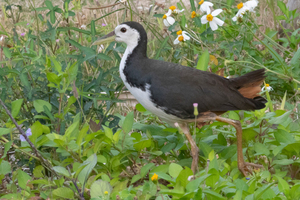
White-Breasted Waterhen
White from the face to the chest.......ead more.

Common slider
Alien Species of Interest, also known as "green turtles"......ead more.

---
has streaks like stone cliffs.......ead more.

African pompano
Beautiful fins that flutter like threads.......ead more.
